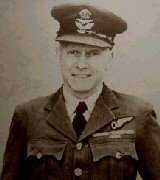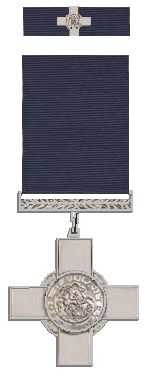Hubert Dinwoodie
| Hubert Dinwoodie GC OBE MC | |
|---|---|
 | |
| Born |
24 March 1896 Bournemouth, England |
| Died |
28 August 1968 (aged 72) Bournemouth, England |
| Allegiance |
|
| Service/branch |
|
| Years of service | 1939–1948 |
| Rank | Wing Commander |
| Service number | 72819 |
| Battles/wars | World War II |
| Awards | |
Wing Commander Hubert Dinwoodie GC OBE MC (24 March 1896 – 28 August 1968), was a recipient of the George Cross shortly after the end of the Second World War for defusing bombs in Germany in 1946.
First World War
During the First World War he won the Military Cross whilst serving with the 3rd Dorset Regiment (attached to a trench mortar battery). He became an observer in the RAF in 1918, joining BEF/20 squadron on 26th Sept. On 6th Oct. he and his pilot were flying Bristol Fighter, serial A2402, when they were shot down. Hubert was badly wounded and eventually discharged from service in June 1919.
OBE
Dinwoodie received an OBE as part of the King's Birthday Honours List on 11 June 1942.[1]

George Cross
On 20 August 1946, German high explosive bombs were being loaded onto barges for disposal at sea when a 50 kilograms (110 lb) bomb was dropped and exploded, killing six and injuring 12. Two train loads of bombs were ready for loading and the port area, in the centre of Lübeck, was evacuated. Squadron Leader Dinwoodie (while on attachment to the 5140 (Bomb Disposal) Squadron, Royal Air Force Volunteer Reserve) and Corporal Garry Garred were sent to the scene and defused one of the remaining bombs in the batch to discover that a faulty fuse had caused the accident. They rendered the remaining 11 bombs safe when another explosion would have not only killed them but set off the bomb laden trains and devastated the town centre.
Awarded the George Cross on 4 February 1947, the citation in the London Gazette praised Dinwoodie for his cool-blooded heroism and initiative he displayed in extremely critical circumstances. Garred was awarded the George Medal.[2]
Hubert's medals and some photographs are held by the RAF Museum at Hendon, London.